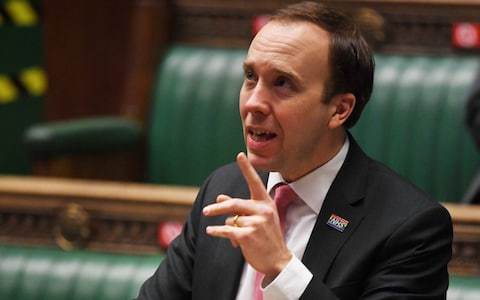
News today of big changes afoot for the NHS, if leaks are to be believed. It seems that Matt Hancock is keen to take back control of the levers, having discovered how dislocated the system is when you need to get something done at pace. Much hope is being invested in the development of the Integrated Care Systems (ICSs) which are the latest iteration of what was being developed as Sustainability and Transformation Partnerships (STPs) 5 years ago. The idea is to coordinate all healthcare across a physical area and create a collaborative system. The obstacles to such an ambition at the moment include a number of pieces of legislation which mean that many parts of the system have legal autonomy, and will inevitably defend their own interests before helping weaker brethren.
The STPs had no legal status and tended to get bogged down in endless process and dubious data gathering. They were dependent on the leaders of front-line organisations both finding enough time to devote to the bureaucracy of creating the greater good; whilst juggling ambulance queues, nursing deficits, and C-Diff; and being prepared to be the Christmas turkey if the resulting plans demanded it. Hardly surprising that they didn’t gain much traction in most parts of the country, especially those where there was a clear quality divide between different organisations on the same patch.
The ICSs will encounter many of the same problems, although some areas have grown more mature partnerships which are doing some very interesting projects. To get real change it will be necessary either to incentivise success by rewarding good organisations with bigger patches, at the expense of less successful organisations, or to renounce the fiction of autonomy and come clean about the desire to recentralise. The independence of foundation trusts has long been eroded by the financial mechanisms which have given increasing control to the centre, but they are defended by a governance structure which was deliberately intended to root them in their locality. Governors, boards, communities and local stakeholders, however much they may regret or decry poor performance, nevertheless resent and repel interference from the centre. Any attempt to close a small unit and ask people to travel to a larger one is met with howls of fury. Even when unassailable evidence is shown of stark differences in outcomes between different institutions, communities are prepared in some cases to defend their local hospitals literally to the death.
I sympathise with any Secretary of State who sees things going pear-shaped in various parts of the system for which they are responsible whilst discovering that they have very little power of remedy. Jeremy Hunt used to try to micro manage the NHS with Monday morning meetings, and Trust CEOs used to dread his phone calls on Monday afternoons demanding instant improvements. I’m sure Matt Hancock, with the added horror of the pandemic, has howled with fury and frustration at the many clangers which have been dropped in the last year. The attraction of creating ICSs; which will undoubtedly acquire huge bureaucracies and regional office buildings, probably those previously occupied by other NHS agencies; giving them legal clout, and telling them to get on with implementing a National Plan, must be huge.
My fear is that we may be heading for yet another twirl of the NHS merry-go-round, during which the entire system spends five years playing musical chairs, at the end of which all the same people will be in slightly different places doing much the same as they were before, except for all the good people who have got so weary that the senior ones will have retired to Devon on their massive pensions and the less exalted will have taken up more rewarding pursuits which feed their souls. We have an addiction to form rather than function.
It would be fantastic if this time we could see all that massive effort going into the pragmatic things that would actually make a difference to the people who use the services and the people who work in them. The NHS is a huge asset to the country, but to improve it we have to move away from the two extremes of blind sentimentality and an obsession with control and look forensically at the daily experience of users and staff. I genuinely hope you succeed, Mr Hancock.



